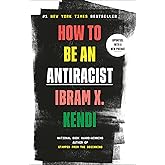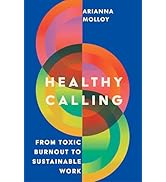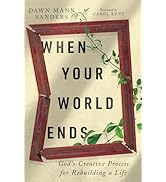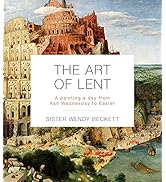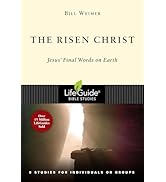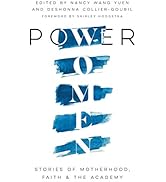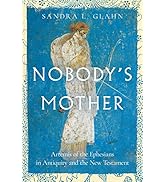
Enjoy fast, free delivery, exclusive deals, and award-winning movies & TV shows with Prime
Try Prime
and start saving today with fast, free delivery
Amazon Prime includes:
Fast, FREE Delivery is available to Prime members. To join, select "Try Amazon Prime and start saving today with Fast, FREE Delivery" below the Add to Cart button.
Amazon Prime members enjoy:- Cardmembers earn 5% Back at Amazon.com with a Prime Credit Card.
- Unlimited Free Two-Day Delivery
- Streaming of thousands of movies and TV shows with limited ads on Prime Video.
- A Kindle book to borrow for free each month - with no due dates
- Listen to over 2 million songs and hundreds of playlists
- Unlimited photo storage with anywhere access
Important: Your credit card will NOT be charged when you start your free trial or if you cancel during the trial period. If you're happy with Amazon Prime, do nothing. At the end of the free trial, your membership will automatically upgrade to a monthly membership.

Download the free Kindle app and start reading Kindle books instantly on your smartphone, tablet, or computer - no Kindle device required.
Read instantly on your browser with Kindle for Web.
Using your mobile phone camera - scan the code below and download the Kindle app.

Follow the authors
OK
Making Peace with the Land: God's Call to Reconcile with Creation (Resources for Reconciliation) Paperback – March 22, 2012
Purchase options and add-ons
God is reconciling all things in heaven and on earth.We are alienated not only from one another, but also from the land that sustains us. Our ecosystems are increasingly damaged, and human bodies are likewise degraded. Most of us have little understanding of how our energy is derived or our food is produced, and many of our current industrialized practices are both unhealthy for our bodies and unsustainable for the planet.Agriculturalist Fred Bahnson and theologian Norman Wirzba declare that in Christ, God reconciles all bodies into a peaceful, life-promoting relationship with one another. Because human beings are incarnated in material, bodily existence, we are necessarily interdependent with plants and animals, land and sea, heaven and earth. The good news is that redemption is cosmic, with implications for agriculture and ecology, from farm to dinner table.Bahnson and Wirzba describe communities that model cooperative practices of relational life, with local food production, eucharistic eating and delight in God's provision.Reconciling with the land is a rich framework for a new way of life. Read this book to start down the path to restoring shalom and experiencing Jesus' kingdom of shared abundance, where neighbors are fed and all receive enough.
- Print length182 pages
- LanguageEnglish
- PublisherIVP
- Publication dateMarch 22, 2012
- Dimensions5.5 x 0.6 x 8.25 inches
- ISBN-109780830834570
- ISBN-13978-0830834570
Book recommendations, author interviews, editors' picks, and more. Read it now.
Frequently bought together

Customers who viewed this item also viewed
From the brand

-
Women's History Month
-
Prepare for Lent
-
Meet Saint Patrick
-
Start a New Bible Study
-
Recommended Books
-
Books to Read with Your Kids
-
Ebooks on Sale
-

Who Are We?
Since 1947, InterVarsity Press (IVP) has been publishing thoughtful Christian books that shape both the lives of readers and the cultures they inhabit. Throughout these seventy-five years, our books and authors have established a legacy of speaking boldly into important cultural moments, providing timeless tools for spiritual growth, and equipping Christians for a vibrant life of faith.
Editorial Reviews
Review
"Weaving personal stories with pertinent data, the authors call attention to biblical and theological mandates to care for all of God's creation, including the land. Written with a broad audience in mind and with a study guide for each chapter, this book is an excellent resource for churches, communities, and individuals committed to caring for, and reconciling themselves with, the land."
-- Narola Ao McFayden, Interpretation, 67(4)"Books like this usually threaten us with scarcity. Bahnson and Wirzba beckon us with God's creative, 'abundant kingdom homesteading,' correcting our 'reconciliation deficit disorder' by helping us to see that the full scope of divine healing includes all creatures and the whole creation--soil and sea and air, and everything contained and sustained by them."
-- D. Brent Laytham, The Christian Century, May 1, 2013"This book was written to equip all of God's people to be more faithful ambassadors of reconciliation in regard to the land. . . . Many Christians need to learn again how to live sacramentally in 'God's garden.' This book provides the biblical vision along with down-to-earth examples that can help make this happen."
-- J. David Holland, Perspectives on Science and Christian Faith, Volume 65, Number 1, March 2013"Fred Bahson and Norman Wirzba are competent guides to this complicated, urgent subject. Too often, readers are hammered with statistics that, while true, tend to confuse and overwhelm. In this case, however, statistics are absolutely necessary and are used judiciously--in no small measure because of the high level of expertise of both authors."
-- John Nyquist, International Bulletin of Missionary Research, Vol. 36, No. 4Bahnson and Wirzba have written a book that is thoroughly Christian, offering inspiration to many of us who seek to understand what on earth (literally) God would have us do. But the book's apologetic value cannot be underestimated. It unfolds the riches of Christian teaching, tradition, experience, and reflection that makes it accessible to those outside the faith. They drive all of us to consider the actual ancient stumbling blocks of Jesus' humanity and his bodily resurrection, and they offer hope."
-- Rusty Pritchard, PRISM Magazine, September/October 2012"In Genesis, God entrusts the care of his good creation to humanity, commanding us to rule it as his vice-regents--which means careful stewardship, not consumeristic exploitation. Determining the difference between the two is sometimes difficult. But with the guidance of prayer, Scripture, and books life Making Peace with the Land, we might find the search for wisdom less difficult than we first thought."
-- Jake Meador, Christianity Today, June 2012"Without a doubt, our most anticipated book of the next few months. . . . This new collaborative effort promises to be an accessible introduction to both writers' work in defense of land, food and agriculture as essential to God's reconcilation, and should not be missed."
-- Chris Smith, Englewood Review of Books, Lent 2012"I cannot think of another book on making peace with the earth that does so much in so few pages--grounding its case with theological care, describing the causes of 'ecological amnesia' so clearly that they are impossible to disown and offering a vision of practical response that appeals to hope instead of guilt, and all of this while telling stories that make the book difficult to put down! Here is a book for anyone who is ready to trade ecological despair for practical action, in the company of two men who know what it means to be 'married to the land.'"
-- Barbara Brown Taylor, author of An Altar in the World"This series is on reconciliation, which is at the heart of the Christian faith. One of the early Christians said there are three dimensions to the cross--the vertical, which is about reconciliation with God; the horizontal, which is about reconciliation to other humans; and finally the cross is firmly planted into the earth, which calls us to reconcile with creation. That final dimension is perhaps the most neglected one of all in the piles of books on faith. I am deeply thankful for this addition to the library. We all just got smarter."
-- Shane Claiborne, author, activist and recovering sinner, www.thesimpleway.org"When Mary turned from the empty tomb and mistook Jesus for a gardener, it was no mistake: Jesus is the new Adam. Thank you, Fred and Norman, for reminding us of our Genesis 2:15 responsibility to tend and protect the Garden, this earth, and calling each of us to the good work of living peaceably with the land."
-- Nancy Sleeth, cofounder, Blessed Earth, and author of Almost AmishReview
"This book reminds us of the resources--scriptural, scientific and human--that we have as we try to write a new story, one that emphasizes the need for people to back off, to allow the planet to operate on its own (God's) terms instead of ours. It's a rich book, which is appropriate, since this is a rich and beautiful world."
-- From the foreword by Bill McKibben, author of Deep Economy and EaarthAbout the Author
Fred Bahnson is a permaculture gardener, a pioneer in church-supported agriculture, and an award-winning poet and essayist. Bahnson is the director of the Food and Faith initiative at the Wake Forest University School of Divinity. Formerly, he was a Kellogg Food Society policy fellow at the Institute for Agriculture and Trade Policy and the cofounder and former director of Anathoth Community Garden in Cedar Grove, North Carolina. Bahnson is a contributor to the University Press of Kentucky book Wendell Berry and Religion edited by Joel Shuman and the author of the forthcoming Free Press book Soil and Sacrament: Four Seasons Among the Keepers of the Earth. His essay "Climbing the Sphinx" was featured in Best American Spiritual Writing 2007 edited by Philip Zaleski.
Norman Wirzba (Ph.D., Loyola University Chicago) is research professor of theology, ecology and rural life at Duke Divinity School. He holds memberships in the American Academy of Religion, the Society for Continental Philosophy and Theology and the International Association for Environmental Philosophy. Wirzba is the author of Food and Faith (Cambridge), Living the Sabbath (Cambridge) and The Paradise of God (Oxford) as well as numerous reviews and articles, including "Agrarianism After Modernity: An Opening for Grace" in After Modernity? Secularity, Globalization, and the Re-Enchantment of the World (Baylor).
McKibben is a former staff writer for The New Yorker and a frequent contributor to The New York Review of Books. His books include The End of Nature (Random House), The Age of Missing Information (Random House), The Comforting Whirlwind (Eerdmans) and, most recently, Hope, Human and Wild: True Stories of Living Lightly on the Earth (Little, Brown).
Product details
- ASIN : 0830834575
- Publisher : IVP (March 22, 2012)
- Language : English
- Paperback : 182 pages
- ISBN-10 : 9780830834570
- ISBN-13 : 978-0830834570
- Item Weight : 8.6 ounces
- Dimensions : 5.5 x 0.6 x 8.25 inches
- Best Sellers Rank: #1,360,937 in Books (See Top 100 in Books)
- #4,281 in Christian Social Issues (Books)
- Customer Reviews:
About the authors

Raised on a farm in the shadow of the Canadian Rockies, I am now the Gilbert T. Rowe Distinguished Professor of Theology and a Senior Fellow at the Kenan Institute for Ethics at Duke University. I write and make public presentations on a wide variety of topics ranging from environmental philosophy and ethics to food studies and sustainable agriculture from a theological point of view.

Discover more of the author’s books, see similar authors, read book recommendations and more.
Customer reviews
Customer Reviews, including Product Star Ratings help customers to learn more about the product and decide whether it is the right product for them.
To calculate the overall star rating and percentage breakdown by star, we don’t use a simple average. Instead, our system considers things like how recent a review is and if the reviewer bought the item on Amazon. It also analyzed reviews to verify trustworthiness.
Learn more how customers reviews work on AmazonTop reviews from the United States
There was a problem filtering reviews. Please reload the page.
- Reviewed in the United States on December 1, 2013A wonderful book if you're interested in religion, the Bible, ecology, agriculture, or anything in between. This book beautifully describes the environmental and food movements from a spiritual perspective. The author are Christian, and that shows in the book, but it could still be a valuable read for non-Christians looking for deeper roots for interests in ecology or food issues.
- Reviewed in the United States on July 24, 2012When I have heard theologians talk about the environment and creation, it tends to border on the typical vague "steward the land" motif. Although I absolutely affirm stewardship, most of the times it doesn't translate into anything deep or practical, and at worse even ignores the most obvious structural problems such as consumerism and exploitative land use in agriculture and industry.
Thankfully, I would say that this book gave me faith that Christians, both theologians and laity, CAN speak meaningfully about practical Creation/environmental ethics while at the same time embedding it into the Christian narratives of atonement, reconciliation, and redemption, something that isn't easy. With each writer bringing different angles and perspectives, the book covers the inter-relationship between a lot of topics such as food, justice, community, energy, agriculture, and even eschatology that could in and of themselves be separate books. From the Desert Church Fathers to contemporary agrarians like Wes Jackson and Wendell Berry, this books employs many wise and thoughtful writers, while at the same time giving real world examples of people enacting and embodying Creational shalom within their communities and churches.
As someone who is familiar with agrarian writers and other environmentally conscious thinkers, this book didn't necessarily present anything new or radical in my mind (hence my 4 stars), but for those (especially Christians who are primarily steeped in soul winning/body denying spirituality)who want to begin thinking about the relationship between Creation and Christianity should look no further.
My only fear with this book is that it could be read too fast since it is only a little over 150 pages. Thus, I recommend reading it twice. I know I will.
- Reviewed in the United States on December 6, 2013Bahnson expresses his view of God's creation in terms that speak to me. Imagining God working with the soil between his fingers is an image that I think makes the creation story more real to me. As I work with the soil I feel a connection to the Creator.
- Reviewed in the United States on November 27, 2015Love this book
- Reviewed in the United States on August 14, 2012The newest offering from IVP Books' Resources for Reconciliation series is Making Peace with the Land: God's Call to Reconcile with Creation. The Resources for Reconciliation series pairs a practitioner with an academician, who then together address the theology and practice of reconciliation in a given sphere of life.
Practitioner Fred Bahnson is an agriculturalist and writer (and excellent theologian); academician Norman Wirzba is a theology professor at Duke Divinity School (and grounded practitioner). Making Peace with the Land makes the Biblical case that "redemption is cosmic," and so extends to the whole created order, not just humanity. God wants all creatures ("human and nonhuman") to be "reconciled with each other and with God." In other words, our Biblical theology of reconciliation is anemic if it does not extend to a loving stewardship of the whole of God's creation. The authors warn against "ecological amnesia."
Our "ecological amnesia" is at its core a theological issue. God is God of the soil, a gardener who loves the soil and brings forth life through it (as noted in Genesis). But we have worked against the land in developing systems and structures for farming that draw heavily on "our own agricultural scheme" and "monocultures of annual crops." Instead we need to "look to nature as a model for how to practice agriculture," engaging in what Bahnson calls regenerative agriculture, founded on the truth that "the ecosystems in which we find ourselves-created by God and deemed `very good'-are far more adept at growing things than we are." The profile in chapter 6 of the work of ECHO (Educational Concerns for Hunger Organization) both astounded and inspired me.
Bahnson and Wirzba are compelling: "Surely it is a contradiction to profess belief in the Creator while showing disregard or disdain for the works of the Creator's hands." After reading a lengthy description of how Chicken McNuggets are made, I was about ready to become a vegetarian. Regardless of how the phrase "animal rights" makes you feel, animal torture is not possibly justifiable by those who have been called to co-steward the creation with God.
At times I desired more exegetical nuance when the authors dealt with Scripture. For example, though the prologue is convincing enough that we ought to view God as gardener, to accept that God's gardening work is "the most fundamental and indispensable expression of the divine love that creates, sustains, and reconciles the world" is difficult for me to... well... reconcile with the expression of divine love on the cross. In the end, it's all of the above. That said, Bahnson's note on the acacia tree in Isaiah 41:18-19 as a nitrogen-fixing tree and thus "divine agroforestry advice" was awesome. And the authors do affirm elsewhere that reconciliation begins with the person and work of Jesus-it is in Jesus that all things hold together, as they point out from Colossians 1.
Many of us practice "a sort of gnostic disdain for manual labor, soil husbandry, caring for physical places and living within our ecological limits." If I make enough money to simply buy food, I don't need to get close to that food except to pick it up at the store (or restaurant!). Then I eat it and keep going with my work, however disconnected I may be from the source of that food. However, "Reconciliation with the land means learning to see the land as part of God's redemptive plan and acknowledge God's ongoing presence there. That will require putting ourselves in proximity to the land and staying there long enough to be changed."
After reading this book, I'm unsettled. I'm a lot farther from "the land" than I perhaps should be. I'm not sure what to do with that.
But if I'm unsettled, I'm also inspired. What if I allowed my having been reconciled with Christ to inform a ministry of reconciliation not limited to other people? What if we followed Wirzba's advice to allow our weekly "Eucharistic eating" to "not only transform the eating we do with people," but to also transform "the entire act of eating, which means [changing] the way we go about growing, harvesting, processing, distributing, preparing and then sharing the food we daily eat"?
That would be an abundant life.
(Thank you to IVP for the free review copy, in exchange for an unbiased review, and-as it turns out-a re-examined life. This review is a condensation of one posted at [...])
- Reviewed in the United States on October 22, 2013Bahson and Wirzba are at the front end of what will become the next great Christian movement. Environmental justice (or "Creation Care") will, by necessity, be the next great Justice movement. This book connects environmentalism (an otherwise secular effort) to Christianity. It's an important resource for Christians who are environmentalists and want to put their inclinations in scriptural terms. In a way, it's an evangelical tool for these folks who want other Christians to see the importance of sustainability for our future.
It's not a perfect book, and lacks some of the theological refinement I generally expect, but as another reviewer explained, this is a good first step. Future books in this field will build off of these ideas, and this is well worth the read.
Top reviews from other countries
 Amazon CustomerReviewed in Canada on August 17, 2017
Amazon CustomerReviewed in Canada on August 17, 20174.0 out of 5 stars Four Stars
The author makes some logic leaps, but the basic premise is well supported and important.
 JanReviewed in Canada on March 9, 2016
JanReviewed in Canada on March 9, 20162.0 out of 5 stars Too Highbrow
This is not written for ordinary people. It is written to scholars. The author uses 20 dollar words for people with a five dollar education. I gave it two stars because I agree with the premise, I just am not enjoying the writing because I have to go to the dictionary way too often.












